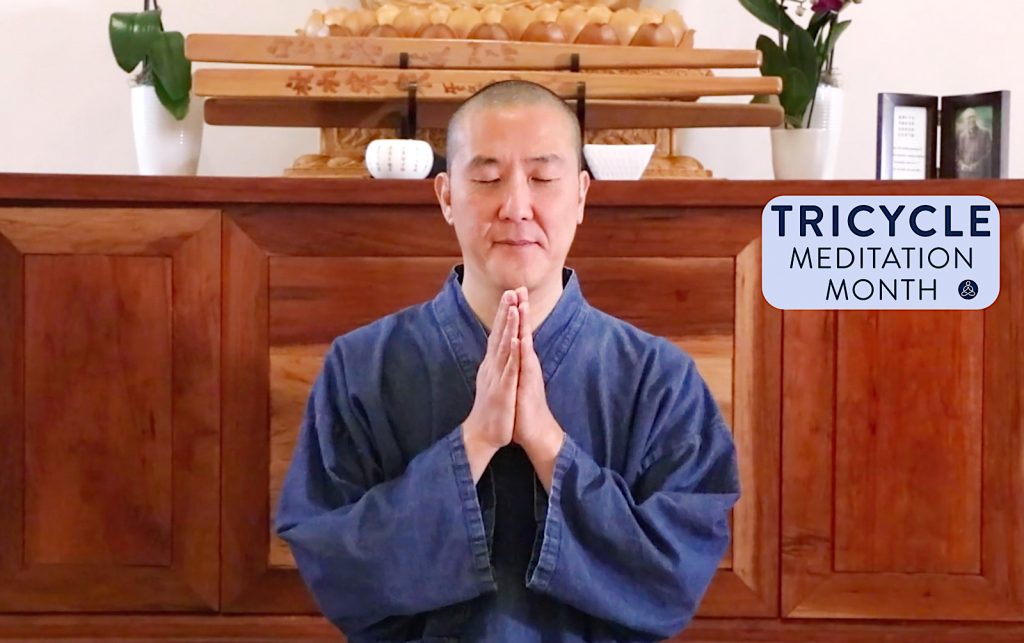This week, Guo Gu explains the term “silent illumination,” a principle we can use to guide us in meditation both when we are scattered and when in perfect concentration. Silent illumination is actually one way to express a Chan (Jp., Zen) concept of awakening. Silence is in the intrinsic freedom within us and our inherent selflessness. Illumination is the function of this wisdom of our lack of a core self. Guo Gu suggests that our “no-self”—and the Buddhist truth of emptiness—is actually our connections with others.
Sometimes people start to have a pessimistic, nihilistic understanding of [no-self and emptiness]. Actually, emptiness and no-self just mean relationships. We exist because of everyone else. Everything about us, our thoughts, feelings, our knowledge, our intellect, our ability to think, comes together because of our connection with others.
Silent illumination can also be understood as a simultaneous practice of shamatha and vipassana: stillness and awareness, or wakefulness and insight. Summing up the teachings of these last four weeks, Guo Gu invites us to reflect on what we’ve learned about progressive relaxation, working with the breath, direct contemplation, and learning to bracket our words, language, and discrimination to experience things as they are as much as possible, and move toward the clarity that comes from embodying silent illumination.
Download a transcript of this talk. It has been edited for clarity.
- Missed Guo Gu’s live call on Friday? Watch a replay here.
More meditation material to support your practice:
- Pleasure is something we might shy away from, or be told outright not to seek in Buddhist practice. But teacher Peter Doobinin writes that the Buddha often taught about pleasure when instructing on breath meditation.
- Discipline is the way—through skill and carefulness—that we align our actions with our fundamental dignity, writes Tibetan teacher Phakchok Rinpoche.
- As the momentum of our practice grows, there may be more space between thoughts and more awareness of whatever is arising in our bodies, our minds, or in the external environment, writes Joseph Goldstein.
This week’s Meditation Month articles:
- “Has Mindfulness Made Me a Bitch?” by Laurie Fisher Huck
- “How the Buddha Deals with Difficult Thoughts” by Martine Batchelor
- “Meditation Tips for Caregivers During Lockdown (And How Others Are Staying Mindful)” by Sumi Loundon Kim
- “From Empathy to Compassion” by Fleet Maull
- “Mute the Commentary” by Charlotte Joko Beck
- “Taking Care of Others (Without Exploding into a Thousand Bits)” by Pamela Gayle White
♦
Thank you for subscribing to Tricycle! As a nonprofit, we depend on readers like you to keep Buddhist teachings and practices widely available.
